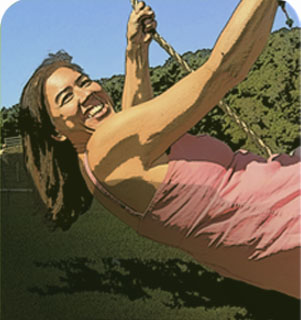Friend, what got you here?

A homeless man reached out to me today, he was young but his shoulders were hunched over and his chest collapsed. He was carrying a sign that said, “homeless veteran”. As I drove up closer to him, he held up his sign. All I had available were 3 packs of tofu on my front seat, I said, “sorry all I have is this tofu! But I imagine that’s not for you?” We both burst out laughing. Having been in military culture from birth to 50, I am aware that tofu is still not standard eating on base (although that’s changing) and in this case I was right to assume it.
I looked at him and said, “Friend, what got you here? He stared then looked away. “Friend, What can I do? I don’t have anything to give you.” He started telling me a story about being in the military when he stopped and his eyes welled up with tears. He looked at me, looked away, then looked again, as if to check me. He said, “you just did it. You just did what no one has done for a long time. You are the first person that has looked me in the eye all day.” It’s hard to describe the stillness that came over both of us then. Tears streamed down his face, and without thinking, we both reached out to touch hands.
Our senses of sight, hearing, taste, touch, and smell give us information from our environment to navigate a world that is separate from us, a world that can hurt if we can’t sense where we are. The heart like the brain also has its own sensory perceptive field, yet the heart has the capacity to extend past the reptilian brain and integrate pathways from the limbic and frontal cortex, meaning our perceptions and emotions, through the fascial and water systems of the body (lymphatic, muscles and fascial coverings of the brain). From 2 weeks on in the embryo, the heart, fascia and circulatory systems of the lymph, brain and cardiovascular systems are tied together as one. But unlike the sensory system whose “soul” purpose is to protect the physical body and can make the muscles jump off a nail, or sprint when a lion charges, the heart does not act to disconnect. The heart always moves toward connection, it is the mind that reacts according to keeping one safe according to perceived unsafe situations, whether real or not. When the mind protects, it makes a judgement and says no, out of survival or behaviorally shaped reaction, but the heart does not stop the yearning for connection, which sets up a pattern for disease or disorder. The heart is like the child of our youth and babyhood, it never goes away, but we put layers over it and spend most of our lives seeking to return to it.
The experience above with the man couldn’t have been more than a minute. Yet it seemed to be an hour. So much was said without speaking in the eyes and the touch. The heart does not act within our usual space time continuum, it needs no time limit or restraint, it speaks and is heard whether we want it to or not. For both of us, our hearts were well aware of a fellow listener.
Without thinking, I said, “whatever got you here, is the same thing that will bring you out”. I shook myself and said, “oh, sorry.” (I hate it when people give advice without asking, including me). He seemed to take a deep breath and said, “you keep looking people in the eye ma’am”. And then I realized horns were blaring. He moved away, straightened up and said, “you keep looking people in the eye ma’am, and keep smiling. Your smile made all the difference to me. All the difference.” I pulled away, both of us waving, me now crying. What got him there was indeed what would bring both of us out.
May in your day recognize the heart as a constant connector, a constant communicator. May your heart stay open, even in the face of another’s hurt or your own, another’s injustice against you or you them with the courage to rectify the situation, may you have the courage to look, see and live with the heart and in so doing transform the world around you.
